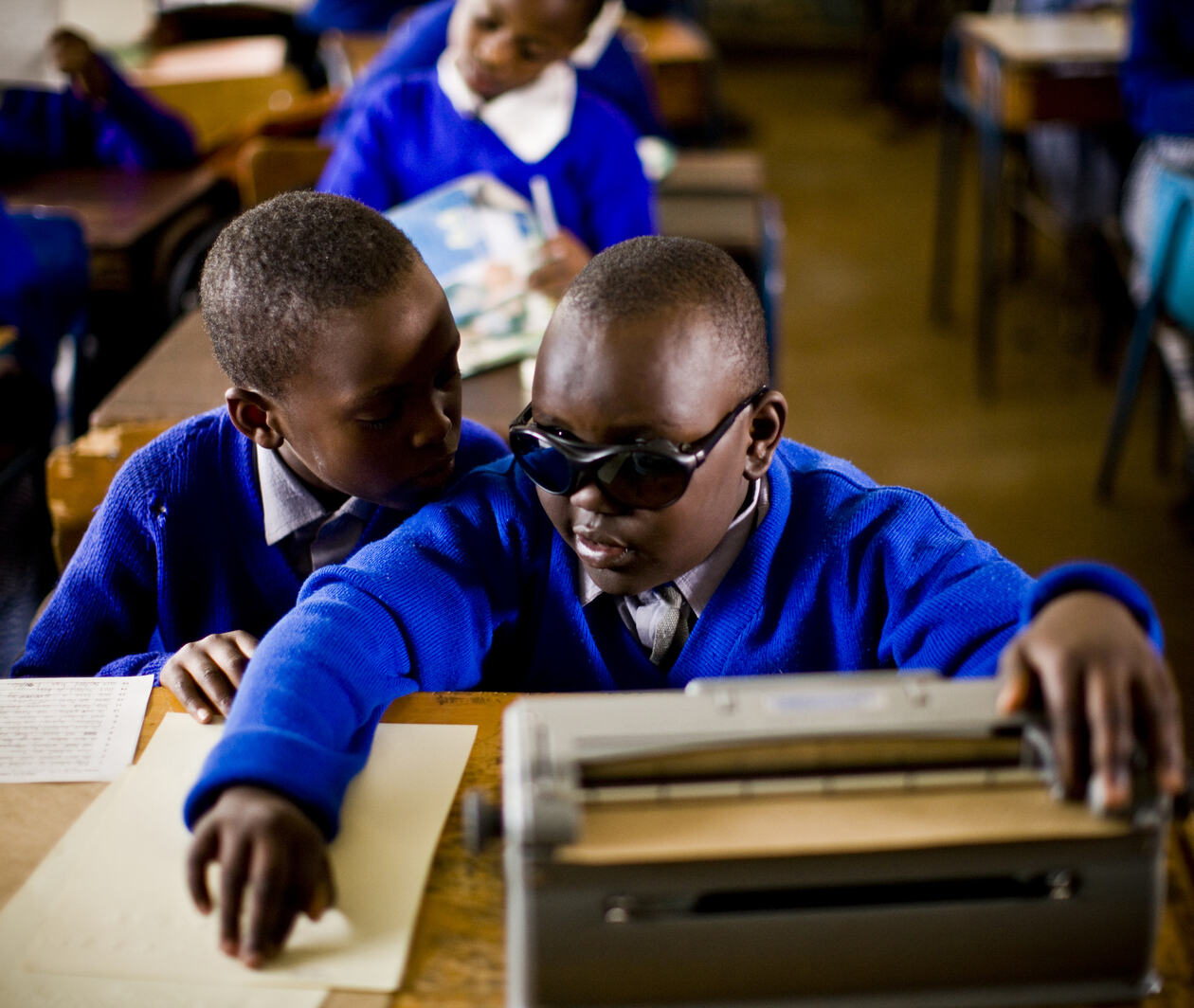Ensure you’re meeting every learner’s needs, including those most at risk of exclusion, by developing inclusive teaching skills.

Duration
3 weeksWeekly study
4 hours100% online
How it worksDigital upgrade
Free
Exploring Inclusive Pedagogies
Examine the impact of inclusive pedagogies in primary and secondary education
Inclusive pedagogies can help create a fair and thriving learning environment for every student.
On this three-week course, you’ll delve into the pedagogical practices of inclusive education and discover how you can ensure all students have the chance to fulfil their potential within your school.
Create an inclusive learning environment with improved classroom management strategies
Inclusive learning environments promote fairness, equality, and support in their everyday frameworks and practices.
On this course, you’ll examine the concept of inclusion and the issues surrounding it. Using behaviour management techniques and whole classroom strategies, you’ll learn how to establish a classroom environment where students feel safe and able to learn.
With this knowledge, you can identify areas for improvement schoolwide and plan ways to promote inclusion across all teaching.
Investigate how to differentiate and promote inclusive learning in your classroom
There are a number of key concepts affecting educational inclusivity, including unconscious bias, medical and social models, and differentiation.
You’ll explore each of these factors and ways to address their impact on learning. You’ll learn practical teaching strategies to ensure individual learning needs are met within your classroom setting.
Develop an ethos of inclusion within the school community
Stepping beyond the classroom, you’ll explore how inclusive pedagogies can provide a foundation for your whole school ethos or mission statement. By doing so, you can ensure that your students remain supported throughout their school journey.
By the end of this course, you’ll have explored the concept of inclusive pedagogies and how these can be developed and embedded into educational frameworks.
What topics will you cover?
- Key concepts about inclusion and its importance in teaching: International human rights agreements, equality and equity, barriers
- Analysis of where your school is now
- Practical solutions for inclusion responsive teaching: medical and social models of disability, classroom management, differentiation, curriculum development
- Planning for change in your school and classroom
When would you like to start?
Start straight away and join a global classroom of learners. If the course hasn’t started yet you’ll see the future date listed below.
Available now
Learning on this course
On every step of the course you can meet other learners, share your ideas and join in with active discussions in the comments.
What will you achieve?
By the end of the course, you‘ll be able to...
- Reflect on the concepts of inclusion and exclusion
- Create a fair and thriving learning environment that caters for all learners – including those most at risk of exclusion
- Develop a plan for change in your classroom and school
- Apply practical approaches to integrate inclusive practices into your teaching
Who is the course for?
This course is designed for primary and secondary school teachers wanting to enhance their teaching practice and understand inclusive pedagogical methods. It is also suitable for other members of school communities including school leaders who may want to develop inclusive practices across their school.
Who will you learn with?
I've specialised in Teacher Training and Early Years in North Africa, South Asia and Eastern Europe. Passionate about supporting teachers and providing remote access to education.
I've worked in EFL/ESL for 25 years, living in Germany, Poland and Hungary, as well as training teachers worldwide on CELTA courses. I have a PGDip in IT (humanities) and an MLitt in Creative Writing.
Who developed the course?
British Council
The British Council builds connections, understanding and trust between people in the UK and other countries through arts and culture, education and the English language.
We work on the ground in more than 100 countries. In 2019-20 we connected with 80 million people directly and with 791 million people overall, including online and through our broadcasts and publications.
What's included?
British Council are offering everyone who joins this course a free digital upgrade, so that you can experience the full benefits of studying online for free. This means that you get:
Learning on FutureLearn
Your learning, your rules
- Courses are split into weeks, activities, and steps to help you keep track of your learning
- Learn through a mix of bite-sized videos, long- and short-form articles, audio, and practical activities
- Stay motivated by using the Progress page to keep track of your step completion and assessment scores
Join a global classroom
- Experience the power of social learning, and get inspired by an international network of learners
- Share ideas with your peers and course educators on every step of the course
- Join the conversation by reading, @ing, liking, bookmarking, and replying to comments from others
Map your progress
- As you work through the course, use notifications and the Progress page to guide your learning
- Whenever you’re ready, mark each step as complete, you’re in control
- Complete 90% of course steps and all of the assessments to earn your certificate
Want to know more about learning on FutureLearn? Using FutureLearn
Learner reviews
Learner reviews cannot be loaded due to your cookie settings. Please and refresh the page to view this content.
Do you know someone who'd love this course? Tell them about it...
More courses you might like
Learners who joined this course have also enjoyed these courses.
Browse more in Teaching
